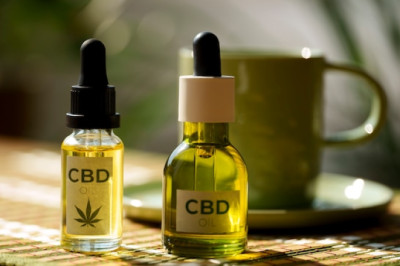CBD oil has gained significant popularity in recent years due to its potential health benefits and natural origins. Derived from the cannabis plant, CBD (cannabidiol) is a non-psychoactive compound that offers various therapeutic effects without the 'high' associated with THC. In this article, we will explore everything you need to know about CBD oil, including its benefits, uses, and considerations.
What is CBD Oil?
CBD oil is a product made by extracting cannabidiol from the cannabis plant and then diluting it with a carrier oil like coconut or hemp seed oil. Unlike THC, another compound found in cannabis, CBD does not have psychoactive properties, meaning it won't make you feel 'high.' This makes it an appealing option for those looking for relief from pain and other symptoms without the mind-altering effects of marijuana or certain pharmaceutical drugs.
Health Benefits of CBD Oil
CBD oil is known for its potential health benefits, which include pain relief, reduction of anxiety and depression, alleviation of cancer-related symptoms, and neuroprotective properties. Some studies suggest that CBD may help reduce chronic pain by impacting endocannabinoid receptor activity, reducing inflammation, and interacting with neurotransmitters. Additionally, CBD oil has shown promise in treating anxiety disorders and improving sleep quality, making it a versatile supplement for overall well-being.
How to Use CBD Oil
There are several ways to use CBD oil, depending on your needs and preferences. The most common method is sublingual administration, where you place a few drops under your tongue and hold it there for about 60 seconds before swallowing. This allows for quick absorption into the bloodstream. Other methods include adding CBD oil to food or drinks, applying it topically to the skin, or using it in a vaporizer. Each method has its own onset time and duration of effects, so it's important to choose the one that best suits your lifestyle.
Potential Side Effects
While CBD oil is generally considered safe, it can cause some side effects in certain individuals. Common side effects include fatigue, diarrhea, and changes in appetite or weight. It's also important to note that CBD can interact with certain medications, so it's crucial to consult with a healthcare provider before starting any new supplement regimen. Despite these potential side effects, many people find that the benefits of CBD oil outweigh the risks, especially when used responsibly and under medical supervision.
Legal Status of CBD Oil
The legal status of CBD oil varies from country to country and even within different states or regions. In the United States, for example, CBD derived from hemp (containing less than 0.3% THC) is federally legal, but some states have their own regulations. In other countries, CBD may be completely legal, restricted, or banned altogether. It's essential to research and understand the laws in your area before purchasing or using CBD oil to ensure compliance and avoid any legal issues.
Choosing the Right CBD Oil
With so many CBD oil products on the market, choosing the right one can be overwhelming. Key factors to consider include the source of the hemp, extraction methods, third-party lab testing, and the presence of additional ingredients. Look for products made from organically grown hemp and extracted using CO2 methods, as these tend to be the purest and safest. Third-party lab testing ensures that the product contains the advertised amount of CBD and is free from harmful contaminants. Reading customer reviews and consulting with healthcare professionals can also help you make an informed decision.












Comments
0 comment